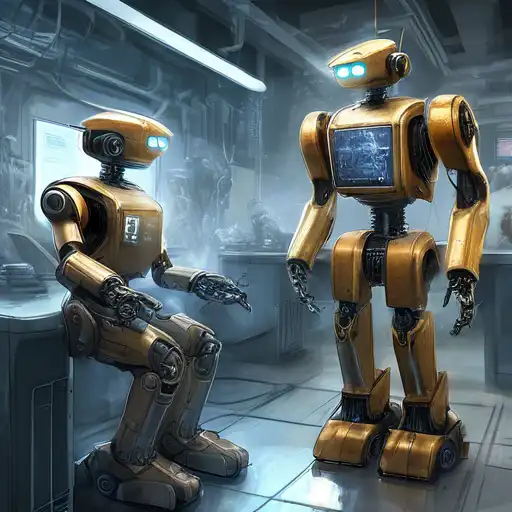The Moral Dilemmas of Autonomous Robots
In the rapidly evolving world of technology, autonomous robots represent a frontier that is as exciting as it is fraught with ethical dilemmas. These self-operating machines, capable of performing tasks without human intervention, are becoming increasingly prevalent in various sectors, from manufacturing to healthcare. However, their rise brings forth pressing questions about morality, responsibility, and the future of human-robot interaction.
Understanding Autonomous Robots
Autonomous robots are designed to operate independently, making decisions based on pre-programmed algorithms and real-time data. Unlike their remotely controlled counterparts, these robots can adapt to new situations without human guidance, offering unparalleled efficiency and precision. Yet, this independence raises significant ethical concerns, particularly regarding accountability and decision-making in critical scenarios.
The Ethical Framework
Establishing an ethical framework for autonomous robots is paramount. This involves addressing issues such as:
- Accountability: Who is responsible when an autonomous robot makes a mistake?
- Privacy: How do we protect individuals' data when robots are constantly collecting information?
- Safety: What measures are in place to ensure robots do not harm humans or other sentient beings?
- Autonomy: To what extent should robots be allowed to make decisions that affect human lives?
These questions underscore the need for comprehensive guidelines that govern the development and deployment of autonomous robots.
Case Studies and Real-World Implications
Several incidents have highlighted the ethical complexities of autonomous robots. For example, in the realm of autonomous vehicles, there have been debates about how these cars should be programmed to respond in life-threatening situations. Similarly, in healthcare, robots that assist in surgeries must be designed with fail-safes to prevent harm to patients. These examples illustrate the delicate balance between innovation and ethical responsibility.
Looking Ahead: The Future of Robot Ethics
As technology continues to advance, the ethical considerations surrounding autonomous robots will only grow more complex. It is crucial for policymakers, technologists, and ethicists to collaborate in creating standards that ensure these machines serve humanity's best interests. By fostering an open dialogue and prioritizing ethical considerations, we can navigate the moral landscape of self-operating machines with confidence and integrity.
For further reading on the intersection of technology and ethics, explore our Technology and Society section.
